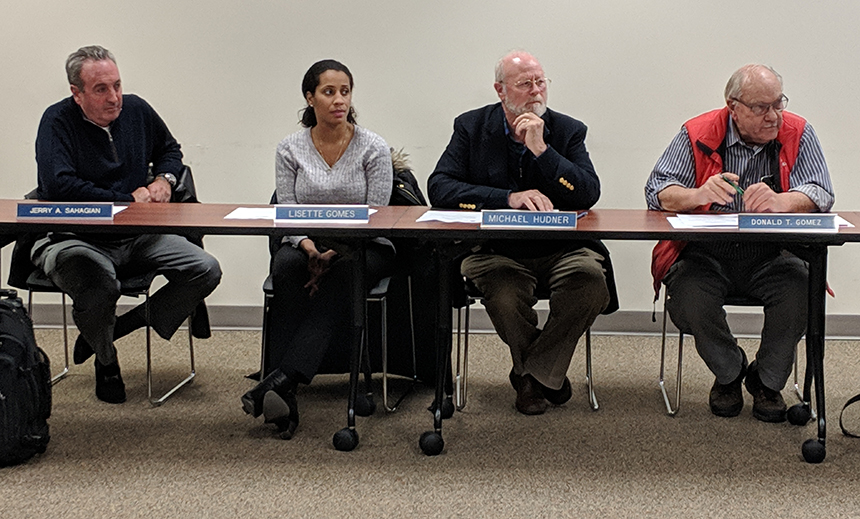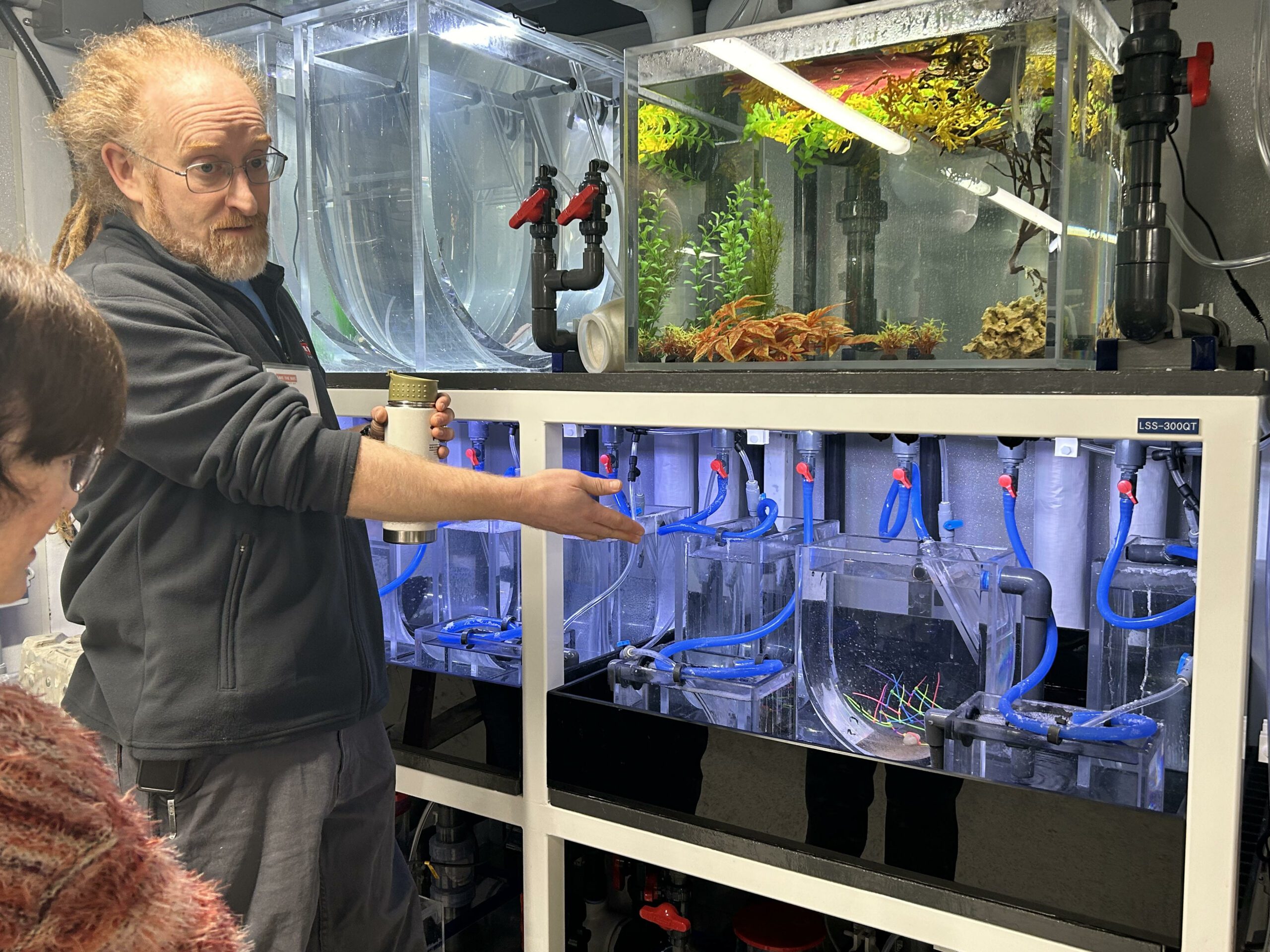Embattled CRMC Struggles to Obtain Quorum at Meetings
There are at least three vacancies on the council, which oversees development along Rhode Island's coastline
June 16, 2022

WAKEFIELD, R.I. — The Coastal Resources Management Council (CRMC), the agency in charge of preservation, protection, and development along the Ocean State’s 420 miles of coastline, has been brought to a standstill by membership issues.
CRMC currently has a six-member voting body with final say on almost all agency application decisions, but the last three meetings — and all related subcommittees — of the council have been canceled due to a lack of quorum.
CRMC’s calendar shows the last time the council met was April 12, and the last time one of its subcommittees met was April 21 in Portsmouth, when the Rights-of-Way Subcommittee held a public forum for five shoreline access points under consideration.
Council members unable to make subsequent meetings had excused absences for “health reasons,” according to agency spokesperson Laura Dwyer.
The lack of meetings means the council is falling behind on votes to approve projects. A posted agenda for a canceled meeting May 24 shows the council was scheduled to vote on final approval on a project from the city of Providence for a multi-use trail connecting Eagle Square to downtown, and a project from Ballard’s Wharf in Newport to dredge its marina. Additionally, the council was scheduled to consider a rule-making change for permit extension requests more in line with the state’s new freshwater wetlands regulations.
The bottleneck is unusual among the state’s departments and agencies. Unlike the Rhode Island Department of Environmental Management (DEM), where the director or major staff sign off on permitting applications, much of the applications CRMC deals with — for docks, boat lifts, dredging, and coastal alterations — are approved by a vote of its council.
Despite the council being separate from much of the day-to-day operations of CRMC staff, it still manages to land the agency in trouble now and then. There are supposed to be 10 members on the voting body, with nine appointed by the governor with the advice and consent of the Senate, and one ex-officio member, the director of DEM or a designee.
The inherently political nature of council members has netted the agency a lot of criticism in the past over cronyism or perceived political favors. In 2021 the council was accused of engaging in a “backroom deal” with Champlin’s Marina on Block Island over an expansion into an environmentally sensitive lagoon.
The sustained criticism over the council’s decisions and the overall underfunded, understaffed nature of the rest of the agency resulted in the creation of a legislative study commission helmed by Rep. Deborah Ruggiero, D-Jamestown, designed to explore ideas on how to overhaul CRMC standards and practices.
But now the agency has an attendance problem. The council needs six members present to create a quorum, as defined by state law, and if one member can’t attend a meeting the council cannot legally meet due to a lack of quorum.
There are at least three vacancies on the council. Since taking office almost a year and a half ago, Gov. Dan McKee has appointed Lindsay McGovern to the council, and he recently nominated someone to replace Cranston resident Joy Montanaro, who had been serving since 2013. Additionally, much of the rest of the council has been serving on expired terms since at least 2020, according to the secretary of state’s website.
McKee’s second nominee to the council is Cranston lawyer Stephen Izzi. Izzi graduated from Providence College in 1980 with a bachelor’s degree in political science and got his juris doctor degree from the University of New Hampshire School of Law. Between 2001 and 2006, he worked for the law firm Holland & Knight, working as counsel to Fortune 500 companies regarding real estate, land development, commercial litigation, and appeals.
Until 2020, when he started his own law firm, Izzi worked for Moses Ryan, primarily working with business clients and real estate matters. His wife, Alison Izzi, works for the Downtown Providence Improvement District, according to Izzi’s Rhode Island Ethics Commission filing.
During a Senate confirmation hearing this week, Izzi pledged to listen to residents and experts when making decisions. “We can bring parties together and try to utilize the resources we have to the benefit of everyone,” he told legislators.
Izzi received a written letter of support from Rep. Art Handy, D-Cranston, and oral testimony in support from Thomas Moses, principal of Moses Ryan.
“Steve is a thoughtful, hard-working individual. He will research the issue, understand it to a level you just don’t see,” Moses told legislators. “He is an old-school lawyer the way you’re supposed to: open a book and figure it out.”
Under questioning from Sen. Josh Miller, D-Cranston, Izzi promised to use his connection with the governor’s office to fill the rest of the seats on the council. “I think it’s necessary,” Izzi said.
The committee voted to approve the appointment to the Senate floor with unanimous consent.
Meanwhile, the future of agency reform looks uncertain. The study commission chaired by Ruggiero submitted its report late last month, and Ruggiero as well as commission vice chair Handy have submitted a slate of bills to reform the agency.
While systemic change — such as abolishing the CRMC council entirely — requires a lengthy approval process from the National Oceanic and Atmospheric Administration, legislators appeared eager to pass short-term reforms before the end of the General Assembly session.
A series of bills — H8306, H8307, H8322, H8323 — would put term limits on council members, require the agency to hire a full-time staff attorney, require agency regulations to be updated every five years, and allow public testimony at the agency’s administrative hearings.
But the Legislature has hit the home stretch of its session, and with the state budget now under consideration it looks unlikely that the reform bills will make it through both chambers before the session adjourns for the year.
An additional wrinkle: It’s unclear what will happen in the General Assembly next year regarding CRMC reform. Ruggiero is running in the primary for lieutenant governor this year and it’s unclear who will take up the issue in January.
CRMC has scheduled a special meeting for June 30, but agency officials declined to comment on a possible agenda. If he is confirmed by the Senate, it would likely be Izzi’s first meeting as a member of the council.
Categories
Join the Discussion
View CommentsRecent Comments
Leave a Reply
Your support keeps our reporters on the environmental beat.
Reader support is at the core of our nonprofit news model. Together, we can keep the environment in the headlines.
We use cookies to improve your experience and deliver personalized content. View Cookie Settings




We need to be sure not to rush appointments to this critical board.Too much of political influence can distort decision making for the general public. Been there done that for years Let RI be a good example of how and who sits on this critical board.
Maybe we need to have people on this board who are sincerely interested and have some expertise in the field, rather than mere political appointees. People who will make time to attend meetings and be productive. I’m sure the governor makes these appointments based on advice of his advisors or others whose interest is more likely to be influenced by outside forces.